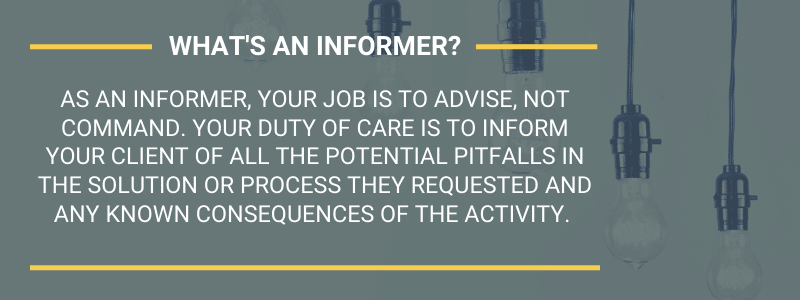Trust is at the basis of any good relationship, and it’s no different in the business world of clients and vendors. If you can build a great relationship with your customers and communicate well with them, you’ve got a much better chance of ensuring that your business is successful and profitable. However, relationships aren’t always easy, and navigating the “customer is always right” path is something a digital marketing consultant is frequently asked about.
We all want to do the best for our clients, right? But sometimes, what your client wants and what you think is best for their business can be quite different. For example, they might have established ideas for engaging in a particular marketing activity that you know will be a total disaster. So it’s up to you to communicate your expertise in your field without hurting their feelings or making them feel that they’re wrong. Your clients need to trust you, and they’re more likely to do so if you’re able to identify common problems related to your industry or sector, demonstrating your insight and knowledge.
This is a common challenge with project-based work, so if you’re looking for ways to promote your client relationships and boost customer success, a Nashville-based consultant for digital marketing can help.
What does it mean to be an informer and not an enforcer?
As the vendor in the relationship with your client, your job is to advise, not command. Your duty of care is to inform your client of all the potential pitfalls in the solution or process they requested and any known consequences of the activity. These consequences include any changes to the financial side of the project plan and possible impacts on other activities as a result.

Once you’ve communicated your concerns, it’s now time for you to back off and let them think. It’s now your client’s decision to move in whatever direction they want with the project.
Tips to being a successful informer
As with lots of things in life, understanding the concept is one thing, but how do you actually do it? Effective implementation of informing, rather than enforcing, is definitely something that gets easier with practice, but if you follow our top tips, you’ll be in a great place to “walk the walk” with your clients.

Listen first
One of the most important elements of being a great informer is to avoid jumping to conclusions. Don’t assume anything. Make sure you fully understand what your client is looking to achieve before you jump in and make suggestions.
You never know; your client might actually be onto something that could be more beneficial for their situation. It’s also important to understand the industry or location-based limitations your client may be facing. Your clients can often help you understand the nuances of their situation, which can allow you to better prepare for their project.
Ask clarifying questions
Clarity is everything. When your client has finished explaining their vision for the business, ask clear, concise questions to make sure that you’ve filled in any gaps in your understanding. The more clarity you get at this point will only help both sides in the future, so don’t hold back your curiosity.
Your client isn’t likely to know all the terminology around the ideas they’re proposing – that’s why they hired you, after all – so make sure you understand not only the words they use but also the overall idea they are presenting. The more curious you are, the more successful you’ll be with this concept.
Don’t take it personally
Business is not personal, and it’s important to keep this in mind when talking to clients. They are paying you to develop or implement a project the way they want it done, which is not to say that they don’t value your efforts and input. Try to separate the project and its possible trajectory from your internal feelings of disappointment and worry.
And suppose the project goes belly up in the way you thought it would. In that case, your job now is straightforward: it’s not about pointing fingers of blame, but to politely remind them of your initial conversation and then discuss what measures you can take to resolve the situation and get the project back on track.
By calmly discussing the situation and offering a plan to move the project in the right direction, you can diffuse the situation and make it more about a proactive push towards greater customer success and less about what went wrong. This is not easy, for sure, but those that get it right will end up with strong, secure, and trusting relationships with their clients.
Learn more about being an informer from a digital marketing consultant
As a digital marketing strategy consultant, we’re constantly looking to tweak a process or change an activity to make business and performance improvements for our clients and impact their bottom line.
Still, we’re also all about harmonious relationships. We want to make our clients as successful as they can possibly be, but final decisions on strategy, marketing activities, and branding belong to them. If your business could benefit from a consultant for digital marketing to building success, why not get in touch? A meeting with a digital marketing strategy consultant offers a no-risk, no-cost, no-obligation discovery meeting to understand your challenges – what have you got to lose?


